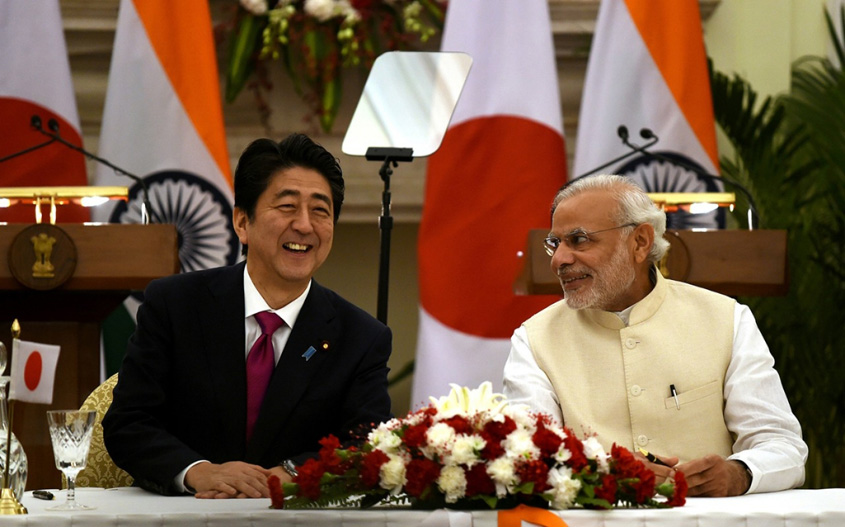Japan’s Prime Minister Shinzo Abe’s visit to India earlier this week has augmented India-Japan defence ties significantly and has irked China on expected lines. While experts in India see the boost in defence ties between India and Japan in a positive light, many expect a “larger return in streams other than the bullet train”. Experts also hoped that China would take lessons in regional co-operation from strengthening India-Japan ties. Explaining China’s displeasure, A.B. Mahapatra, chairman, Centre for Asian Strategic Studies-India (CASS-India), said, “China’s paramount concern is not Japan’s investment in India, but India and Japan’s global partnership. There is a larger picture of India and Japan investing in Africa that China is worried about. China has invested in Africa, but has been bullish too. Africans prefer India over China. So, if now Africa has a choice other than China, they will be able to oust China. Botswana has been vocal about their discontent with the Chinese too.” Other than the subject of preference, Africa needs investments in other sectors that are not China’s forte. “Sectors like education, agriculture etc., are where partnership between India and Japan will work wonders in Africa. China is not even present in these sectors, because their investments are on different scales in metal, construction and machinery sectors. So, Japan can invest in India’s bullet trains or Northeast, but for China, the India-Japan partnership on a global scale presents indirect competition,” said Mahapatra.
Pranay Kotasthane, research fellow, Takshashila Institute, said, “Abe’s visit is a testimony to the fact China’s economic and military rise is bound to coalesce some of its neighbours against China. And this will happen regardless of the cultural impediments, ideological fixations and political hesitations in these countries. Japan as the only East Asian country with both the interest and the power to construct a regional balance of power to counter Chinese domination in the region, currently faces security challenges from both China and North Korea.” Kotasthane added, “Thus, any move that lends a hand to an increase in Japanese power is good for India. This Indo-Japanese cooperation will also drive home the point in China that its own efforts through arrogant, provocative, threatening, and even racist words and deeds have been partly responsible in driving China’s neighbours against it. The joint statement talks about enhanced maritime security cooperation, technology cooperation in surveillance and unmanned system technologies, defence industry cooperation, and expansion in scale and complexity of joint military exercises. All these are positive developments for India and Japan. Though the sale of US-2 amphibian aircraft could not be finalised during this visit, it should not be seen as a failure. The Japanese defence manufacturers, bureaucracy, and public opinion are still coming to terms with a changed world.”
Mahapatra said: “For Japan, investing in defence ties with India is not much of an ideological concern, but is more financial in nature. Indians prefer capping the price, while most nations providing technology do not warmly welcome this format. Japan has not been much flexible on this point and Indians have been traditionally unwilling to pay more for the same product in future. India and Japan also have a lot to achieve in space and nuclear co-operation, but these points on the lists will require to be checked one by one.”

